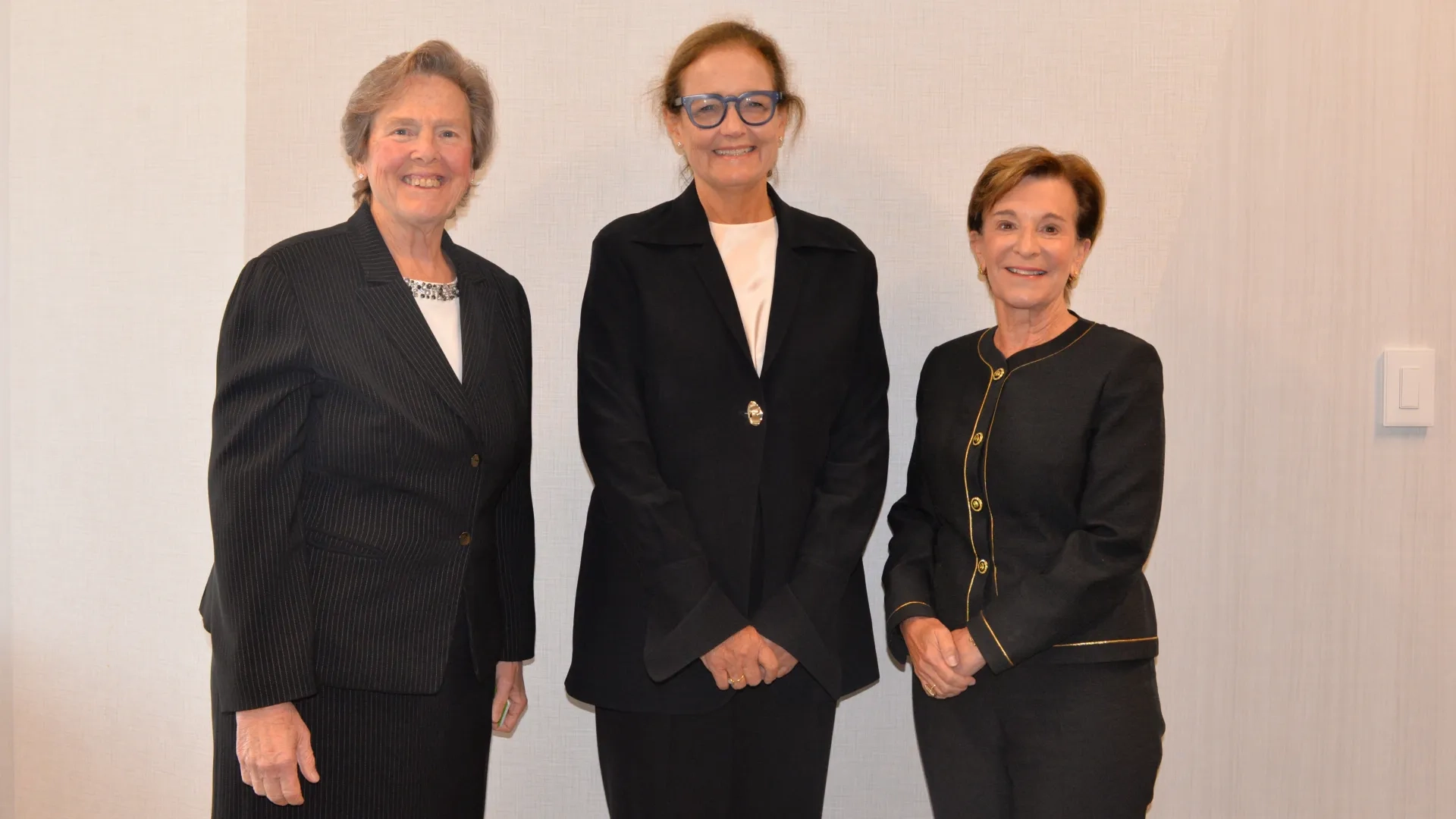
Says MGH Institute has much to offer the next generation when it comes to caregivers, researchers, and opportunity
When one looks at the health of the Commonwealth, it is clear that Massachusetts stands as one of the fittest in the nation. But when you look to the future and the state’s ability to care for an aging population, how to grow and reimagine a workforce to keep up is a question the state is trying to answer. That was the message this morning from Secretary of Health and Human Services Kate Walsh, who spoke to the MGH Institute’s Board of Trustees and leaders at 1 CW.
“We need people to stay in their jobs, and it has to be economical viable, or they won’t stay,” said Walsh during an hour-long presentation/question and answer session. “And there have to be advancement opportunities in those jobs.
“The MGH Institute not only trains the next generation, but also trains people who go on to leadership positions. The IHP, in particular, trains leaders across health and I hope increasingly across human services. The connection is this workforce which can be fungible across those areas.”
Walsh, the president and CEO of Boston Medical Center for 13 years before assuming her position in March, walked leaders through what the agency’s responsibilities are, how its 24,000 employees provide services to nearly one in three residents, and how two-million of the Commonwealth’s seven million citizens are on MassHealth, the state’s Medicaid and Children's Health Insurance Program.
“It’s not easy work,” said Walsh. “It’s really inspiring to see how hard people work to take care of our friends, neighbors, and family members.”
Given the MGH Institute’s emphasis on workforce development, Walsh broke down the specifics of why workforce development was the biggest challenge and where the Healey-Driscoll Administration’s HHS workforce priorities are: behavioral health, nursing, and direct-care workers who work in home- and community-based settings. A multi-pronged effort is underway to expand and retain the workforce, including providing financial support with temporary and permanent rate increases, grants and student loan repayment programs, and licensing and regulatory credentialling flexibility.
“Workforce is a big piece of making sure we can meet the needs of our patients,” noted Walsh after her presentation.
Given workforce challenges, the state is also exploring strategies to augment the workforce through technology and innovative care delivery.
“I think innovation, much like life science, has cured diseases,” said Walsh. “And I think innovation will help us figure out the best way to care for people who can no longer care for themselves, which is a big part of the work that we do.”
Work that needs people to do it, something Walsh says the IHP can help with.
“There's 24,000 people who do this work across the Commonwealth, and the IHP can help make sure we're doing research, continuing education, and elevating opportunity,” concluded Walsh. “This can help us get the best possible workforce.”
Do you have a story the Office of Strategic Communications should know about? If so, let us know.
